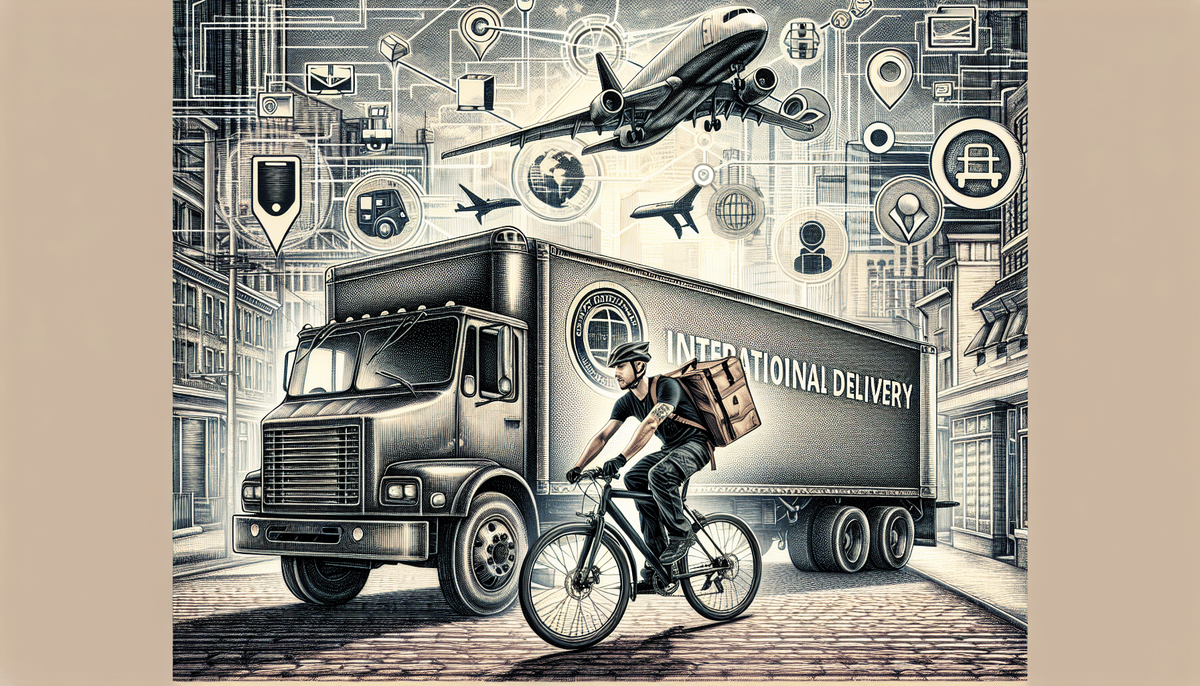Understanding Carriers and Couriers
In the realm of shipping and logistics, carriers and couriers represent two fundamental service types, each catering to different shipping needs. While often used interchangeably, understanding their distinct functions can enhance your shipping efficiency and cost-effectiveness.
What Are Carriers?
A carrier is a company specializing in transporting goods over long distances, frequently across states or internationally. They utilize multiple modes of transportation, including trucks, planes, and ships, to ensure comprehensive coverage. Major carriers like FedEx and UPS have established extensive networks to handle large-scale logistics operations.
What Are Couriers?
In contrast, a courier typically focuses on delivering packages locally or regionally. Couriers often use bicycles, motorcycles, or vans to navigate urban environments efficiently. This agility allows them to provide rapid, same-day or next-day delivery services, making them ideal for time-sensitive shipments.
History and Evolution of Carriers and Couriers
The evolution of carriers and couriers is closely tied to the growth of commerce and technological advancements.
The Rise of Carriers
Carriers like UPS and FedEx have been pivotal in shaping global logistics. Established in the 20th century, these corporations expanded rapidly to meet the demands of increasing international trade and e-commerce.
The Emergence of Couriers
Couriers began as small, local businesses, often operated by individuals using personal vehicles. The surge in e-commerce in the early 21st century led to the expansion of courier services, allowing them to scale operations and incorporate advanced technologies for tracking and delivery optimization.
Roles in Modern-Day Logistics
Both carriers and couriers play integral roles in the current logistics landscape, each serving unique purposes based on shipment size, distance, and urgency.
Carriers in Logistics
Carriers handle large-volume shipments that require specialized equipment and handling. Their expansive networks facilitate international trade, offering services like customs clearance and cross-border transportation. Additionally, carriers provide warehousing and distribution solutions, enhancing supply chain efficiency.
Couriers in Logistics
Couriers excel in delivering smaller, time-sensitive packages within local or regional areas. Their ability to offer personalized and rapid delivery services makes them essential for businesses needing quick turnaround times. Many couriers now integrate technology for real-time tracking, ensuring transparency and reliability.
Services Offered by Carriers and Couriers
Both carriers and couriers provide a range of services tailored to different shipping requirements.
Carrier Services
- Ground Transportation
- Air Freight
- Sea Freight
- Refrigerated Transport for Perishables
- Hazardous Materials Handling
- Warehousing and Distribution
- Customs Brokerage
- Real-Time Tracking and Insurance Options
Courier Services
- Same-Day and Next-Day Delivery
- Express Delivery Options
- Specialized Delivery Services (e.g., Signature Required)
- Packaging and Crating Services
- Industry-Specific Solutions (e.g., Medical, Legal)
- Real-Time Tracking and Delivery Confirmation
Choosing Between Carriers and Couriers
Deciding whether to utilize a carrier or courier service hinges on several factors, including shipment size, distance, urgency, and budget.
Assessing Your Shipping Needs
- Volume of Goods: Large shipments across long distances are best handled by carriers.
- Delivery Speed: Time-sensitive shipments benefit from the rapid services of couriers.
- Budget Constraints: Carriers often offer cost-effective rates for bulk shipments, while couriers may be more economical for smaller deliveries.
- Security Requirements: High-value or sensitive items may require the advanced security measures provided by carriers.
Evaluating Service Providers
Consider the reputation, reliability, and customer service of potential carriers or couriers. Reviewing customer testimonials and industry ratings can provide valuable insights into provider performance.
Pros and Cons of Carriers and Couriers
Understanding the advantages and disadvantages of each service type can inform your shipping strategy.
Carriers
- Pros:
- Extensive coverage and ability to handle large shipments
- Competitive rates for bulk shipments
- Advanced tracking and security features
- Additional services like warehousing and customs brokerage
- Cons:
- Longer delivery times for international shipments
- Potential for higher costs on smaller, time-sensitive deliveries
- Strict packaging and handling requirements
Couriers
- Pros:
- Faster delivery times, often within the same day
- Personalized and flexible service options
- Ideal for small or urgent shipments
- Cons:
- Higher costs for bulk or long-distance shipments
- Limited coverage areas compared to carriers
- Potential restrictions on shipment types and sizes
Future Trends in Carriers and Couriers
The logistics industry is continuously evolving, with emerging technologies and changing consumer expectations shaping the future of carriers and couriers.
Technological Advancements
Innovations such as autonomous vehicles, drones, and AI-driven logistics are revolutionizing delivery methods. These technologies promise increased efficiency, reduced costs, and faster delivery times.
Sustainability Initiatives
Environmental concerns are driving carriers and couriers to adopt more sustainable practices. This includes the use of electric delivery vehicles, optimization of delivery routes to reduce carbon emissions, and investment in eco-friendly packaging solutions.
Integration with E-Commerce
The continued growth of e-commerce demands more sophisticated logistics solutions. Carriers and couriers are enhancing their digital platforms to provide seamless integration with online retailers, offering real-time tracking, automated notifications, and flexible delivery options to meet consumer demands.
Optimizing Your Shipping Strategy
To maximize the benefits of using carriers and couriers, consider the following strategies:
Leverage Technology
Utilize tracking systems and logistics software to monitor shipments in real-time, manage inventory, and streamline order fulfillment processes.
Build Strong Partnerships
Establishing reliable partnerships with reputable carriers and couriers can lead to better rates, prioritized service, and improved operational efficiency.
Prioritize Sustainability
Implementing eco-friendly shipping practices not only benefits the environment but can also enhance your brand reputation and appeal to environmentally-conscious consumers.
Regularly Review and Adapt
Continuously assess your shipping needs and market trends to adapt your logistics strategy accordingly. This ensures that you remain competitive and responsive to changing customer expectations.
Conclusion
Choosing between carriers and couriers depends on various factors, including shipment size, distance, urgency, and budget. By understanding the distinct roles and services each offers, you can make informed decisions that optimize your shipping operations and enhance customer satisfaction. As the logistics industry evolves, staying informed about emerging trends and technologies will further empower your shipping strategy.



















